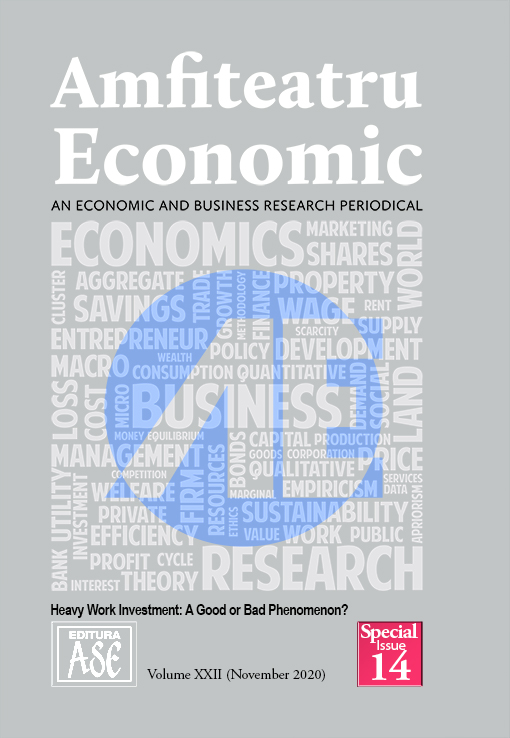Influence of Heavy Work Investment on Job Satisfaction and Turnover Intention in Romania
Influence of Heavy Work Investment on Job Satisfaction and Turnover Intention in Romania
Author(s): Marcela Nemțeanu Sefora, Dan-Cristian DabijaSubject(s): Human Resources in Economy
Published by: EDITURA ASE
Keywords: heavy work investment; work engagement; workaholism; job satisfaction; turnover intention; Romania
Summary/Abstract: Studying the phenomenon of heavy work investment in an emergent market (Romania) is necessary due to the frequent practice of employees working overtime, relatively reduced job satisfaction in contrast to their counterparts from developed markets, and comparatively low remuneration for the same work effort. Therefore, the aim of this research is to highlight the influence of heavy work investment forms (workaholism and work engagement) on job satisfaction and turnover intention. Based on the Attribution Theory, the authors conducted quantitative exploratory research among employees with tenured contracts in an emergent market (Romania). The data was gathered with the aid of an online questionnaire, being tested for reliability, validity, and internal consistency in SPSS, while the hypotheses were tested with the help of structural equation modelling (AMOS). The results show that job satisfaction is influenced by both work engagement and excessive working (workaholism). The more a person is engaged in their work activity, the weaker their turnover intention. Turnover intention is intricately linked to excessive working, a component of workaholism. From a managerial standpoint, this paper contributes to a better understanding of the way work engagement and workaholism influence work outcomes, highlighting possible ways of improving human resource management in organizations.
Journal: Amfiteatru Economic
- Issue Year: 22/2020
- Issue No: SI 14
- Page Range: 993-1013
- Page Count: 21
- Language: English

